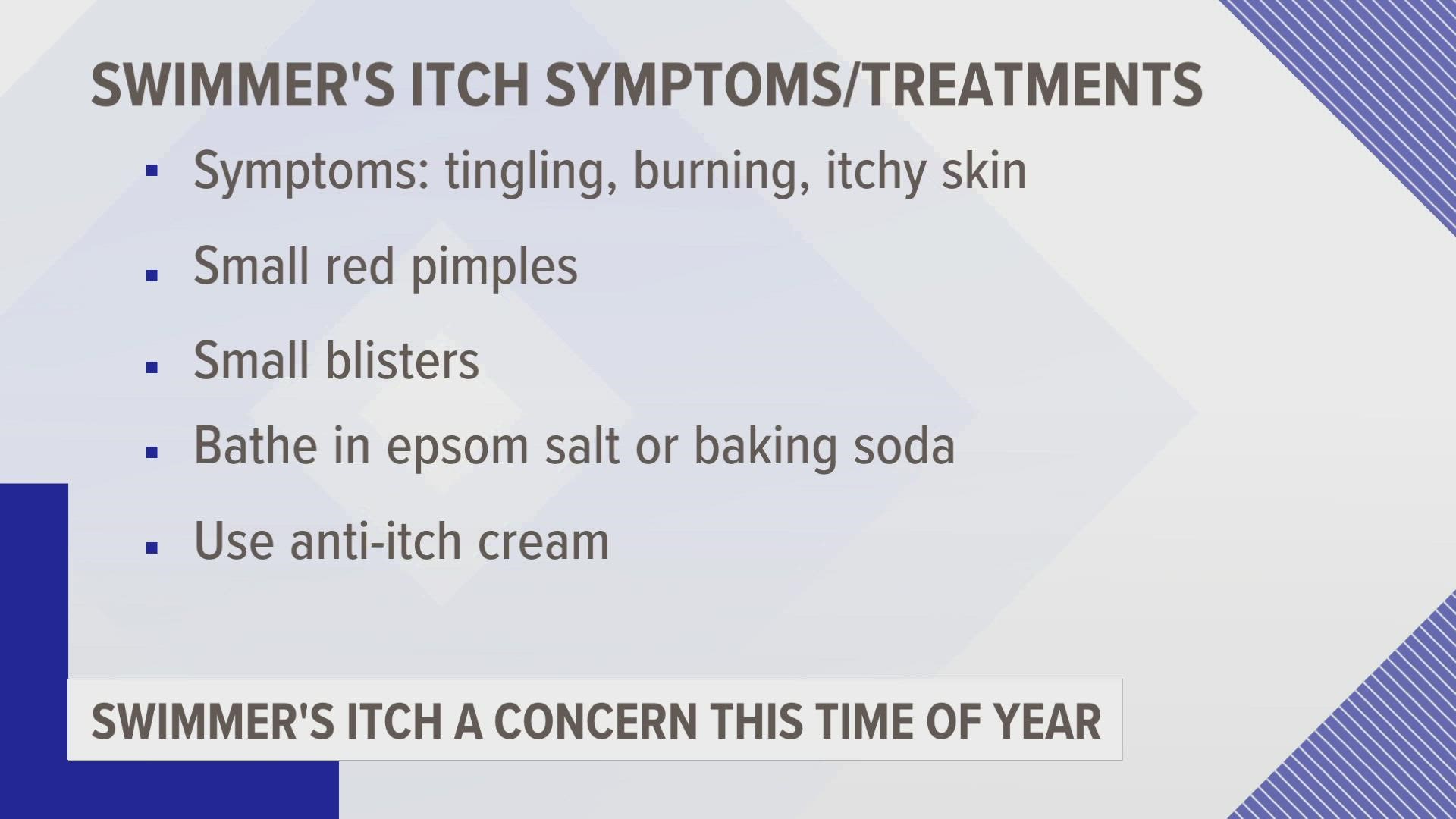MICHIGAN, USA — Cercarial Dermatitis, also known as "Swimmer's Itch," is caused by an allergic reaction to microscopic parasites that can be found in shallow water around Michigan.
Northern Michigan mostly, especially the Upper Peninsula.
July is the peak season for Swimmer's Itch, a skin rash that's luckily not contagious.
"[The parasites are] actually found in the feces of waterfowl, so geese, ducks," said Dr. Michael Vizachero of the Community Medicine Clinic in Downtown Grand Rapids.
The red rash that spreads across the body can be quite itchy and unpleasant, but it's recommended you don't scratch because it could cause an infection.
Dr. Vizachero also said it it goes away by itself, usually in about a week.
One way to reduce the risk of getting it is when you're out on the beach or swimming and you see goose droppings. Remember there might be parasites nearby and avoid that area. Know that storms can wash the droppings onto the shore.
Another way is by showering with clean water and briskly drying off with a towel. That way the parasite is less likely to actually get into your skin.
If you do end up with the Swimmer's Itch, Dr. Vizachero said "the best thing to do is just do symptomatic treatments. So you can try hydrocortisone creams, Benadryl, Calamine lotions, Epsom salt baths or oatmeal baths."
Those solutions mean you don't have to see your primary care physician. Except, as Dr. Vizachero said, "if the rash is lasting longer than a week or you notice it getting worse after that time. If you're noticing signs of infection, so maybe pus or blistering or worsening redness of the skin, that might be signs of bacterial infection that's superimposed."
The rash occurs because it's an allergic reaction, meaning like how typically with allergic reactions, repeated exposure can make the symptoms worse.
"So you know the first time you get it, it might be very mild," he said. ""The if you get it a second or third time. However, you might notice that the rash comes on quicker and it also might be more intense and more severe. So just trying to avoid repeated exposures if you had it in the past is something definitely to think about."
That means unfortunately, there's no building immunity to it.
So wait, who exactly is allergic?
Dr. Vizachero says everyone is allergic to the parasites to some degree. "If you have common skin sensitivites like eczema, you might be more sensitive to it. But, in general, yeah, it doesn't discriminate."
►Make it easy to keep up to date with more stories like this. Download the 13 ON YOUR SIDE app now.
Have a news tip? Email news@13onyourside.com, visit our Facebook page or Twitter. Subscribe to our YouTube channel.

